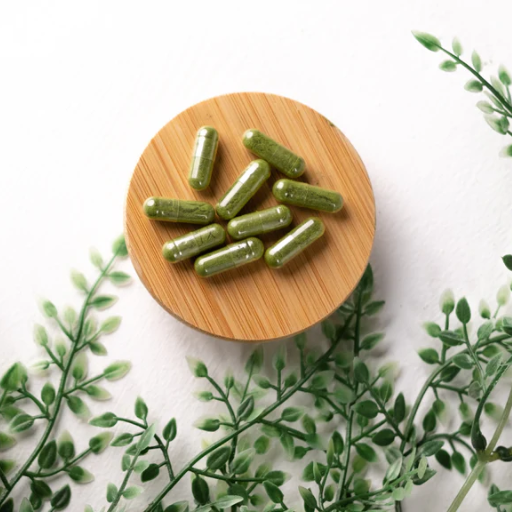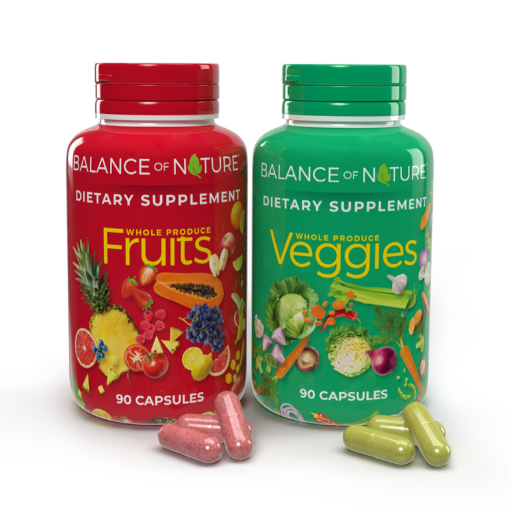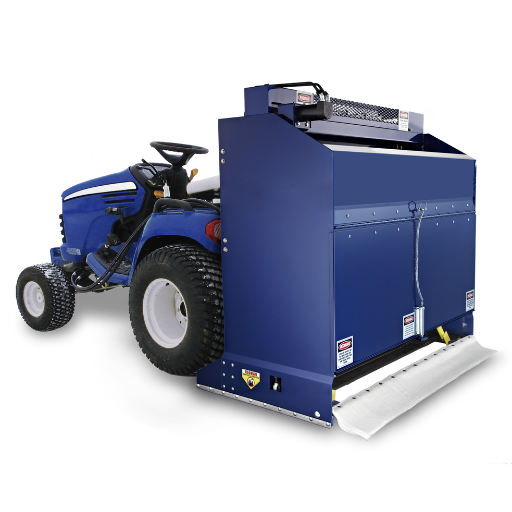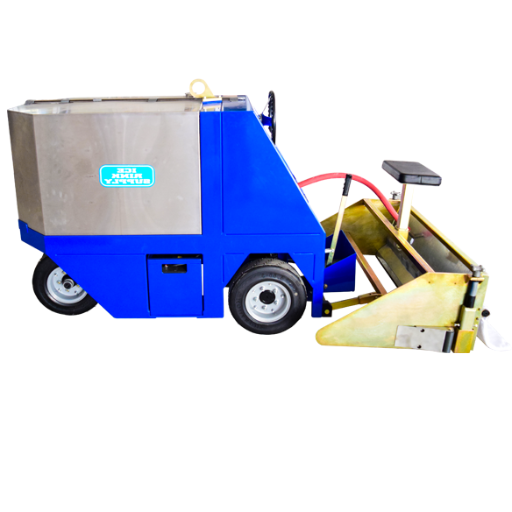As the pharmaceutical and nutraceutical industries continue to advance, there has been an increase in the need for more dietary compliance and sustainable options, resulting in the invention of vegetarian capsules. These capsules are a good replacement for gelatin capsules to people who avoid animal products for religious or ethical reasons. This article provides a detailed overview of the market’s materials, properties, and types of vegetarian capsules. The target audience of this article will see the use of HPMC and pullulan, which are the materials used to make these capsules and how these materials enable the capsules to function effectively and be versatile. The article will also discuss various capsule shapes or designs, how they are manufactured, and their benefits concerning standard capsule types. This would be informative for consumers and professionals who wish to learn more about the topic.
What Are the Main Ingredients in Vegetarian Capsules?

Hydroxypropyl methylcellulose (HPMC) and pullulan comprise a vegetarian capsule’s composition. HPMC is a polymer from plant cellulose, widely known for its capacity to create an effective and strong capsule shell capable of enclosing different types of fillers. It is a plus for the sector as it is a vegetarian plus a vegan polymer, and its passive characteristic does not interact with the product’s active ingredients, enhancing its performance. According to the company facts, pullulan is produced from fermented tapioca, a vegetable product that gives a transparent aesthetic appeal and possesses properties relevant to coating. Because of Pullulan’s outstanding oxygen barrier characteristics, it is easily useable and appropriate for protecting active ingredients. These factors combine to provide a nonanimal-derived orientation capsule, thus solving many people’s ethical, dietary, and health concerns.
Introduction
This paper explores the vegetarian capsules market, providing the discussion target readers with an authoritative understanding of this emerging pillar in the pharmaceutical and nutraceutical market. The article states that readers will better understand some materials used in the vegetarian capsules, namely HPMC and pullulan, which are not promising developments but are environmentally safe as well. It explains how capsules are made, the differences between the functional characteristics of vegetarian and hydrogel capsules and explores different types of capsules. In a nutshell, the purpose of this post is to enhance readers’ understanding of the dispersion of capsule types, their construction as well as the reasons for which they should be used to assist consumers and industry professionals in improving their ethical and health-related decisions regarding capsule selection.
Understanding Cellulose and Its Role
During my deliberation over the composition of vegetarian capsules, it became evident that cellulose has a major function, if not the greatest since it forms the basis for hydroxypropyl methylcellulose (HPMC), one of the crucial ingredients. Top resources provide that cellulose is a polymer occurring naturally with plant sources, which is fundamental for the configuration and strength of plant cell walls. For vegetarian capsules, HPMC made from cellulose offers a plant-based substitute for gelatin that is stable. I could see chemically the way how it forms a thin, elastic, and tough shell, which ensures that the capsule is strong and still functional. The inclusion of cellulose for the formulation of capsules is not only per my quest for end sustainability but also accommodates various dietary and ethical considerations underpinning the testimony of modern capsule technology.
The Use of Hypromellose in Capsule Production
Also known as hydroxypropyl methylcellulose, hypromellose is a vital ingredient in making vegetarian capsules due to its broad applications and useful characteristics. Obtained from cellulose, hypromellose is widely known to be non-toxic as well as inert, therefore, the hypromellose does not interact with the substances in the capsule which ensures the contents of the capsule remain intact and functional as intended. The manufacture of hypromellose differential involves chemical modification of cellulose with the use of methylating and hydroxypropylating processes to yield a substance that has good film-forming characteristics.
Its principal characteristics are its aqueous solubility, gastro-intestinal tract swelling, and its ability to regulate the discharge of active substances. Hypromellose capsules have 4-6 percent moisture content, which, although ideal for moisture-sensitive formulations, is not the case for gelatin capsules, which are sensitive to excessive moisture. In addition, hypromellose provides very good oxygen barrier, so incipient compounds are more stable. All these parameters have, in turn, facilitated the increased use and acceptance of hypromellose in the nutraceuticals and pharmaceutical markets as an effective, eco-friendly option during the encapsulation process.
How Pullulan Capsules Differ from Other Types
In contrast to other capsule forms, Pullulan capsules are unique in structure and design and have specific advantages. These capsules are derived from a polysaccharide polymer fermenting tapioca, so they are naturally safe and biodegradable. Pullulan capsules are known to have superior barrier properties and are devoid of an oxygen atmosphere, which increases the stability of active ingredients and improves the product’s overall life. Gelatine and even hypromellose capsules are put into use in cases where taste and appearance are not a consideration, as these capsules have no or subtle flavor and taste while being clear as water.
Apart from the overall pleasant experience of pullulan capsules, the extender has wide technical drawbacks, such as flexural strength and moisture quantity. Capsules, being pullulan, can bend and remain intact, while gelatin ones bend and crack under low humidity. Most of the time ease of dissolving and taste comes from a 3-7% moisture content, which has consequences of extreme sensitivity from moisture. Consumers have become conscious as the market has evolved, and with the help of certified non-GMO and nonorganic pullulan has left a wide & range of competitive capsule options . Overall, strive for vegan-friendly, vegan-expansive, and plant-based, and put these capsules a step ahead of other options that are available to the public.
How Do Vegetarian Capsules Compare to Gelatin Capsules?

Vegetarian capsules differ from gelatin capsules because they are targeted for different consumers with different preferences that, more or less, are tailored to an industry’s requirement. Gelatin capsules, by their nature, come from animal sources, mainly collagen obtained from the connective tissues of either cattle or pigs, a fact that worries those who want to avoid the use of animal sources for dietary, ethical, or religious reasons. On the contrary, a vegan and vegetarian capsule consists mainly of hydroxypropyl methylcellulose (HPMC) or pullulan, both of which are plant-based.
On a technical perspective, however, and as far as the requirements of a wider range of substances are concerned, a vegetarian capsule has the most appealing characteristics as it has a broad range of stability in a variety of pH and is less likely to interfere with the contents that they encapsulate. Additionally, they are well soluble in fluids and easily digested. Also, the permeability to the gases, including oxygen, particularly pullulan capsules, is better than the gelatin capsules, which improve the useable life on the shelf of the oxygen-sensitive products. Besides, a striking interdependence exists in this region where vegetarian capsules occupy positions of great promise as they can withstand a wider range of storage conditions.
Despite the benefits, vegetarian capsules tend to be more expensive than their gelatin counterparts, which can be explained by the intricacy of processes related to plant-based materials. Nevertheless, when vegan and allergen-free options increase in demand, manufacturers are exploring cost-effective processes and materials. In conclusion, deciding whether to go for vegetarian or gelatin capsules relies on people’s dietary habits, ethical issues, and the product features that must be encapsulated.
Differences in Capsule Material
Multiplying the functionalities and usages of these materials seems to be a trivial exercise. However, I distinguish between gelatin, HPMC, and pullulan, and I appreciate the functionality associated with the gelatin-type capsules in the more gelatinous capsules. It’s already clear what types of capsules you should target in this case: gelatin capsules are the never-ending low-cost animals collagen capsules, perfect for fishing or dunking into any cold hot oil, but can be quite problematic for those who have to avoid them for dietary or ethical, in my passive research on top resources—exceeding the boundaries and extending to the HPMC capsules, which also works, embroidered in our era of tussots, extending zealousness and stability through the different states of the pH level environment. From tops they are not bad, pullulan would be stingy with a ziplock stuffed with fermented tapioca starch for better quality and oxygen stability of every pole ring that makes its presence around the long neck of the ring. They are quite expensive, but I believe the transition trend from animal materials to plant-derived materials must have certain reasons that consumers are continuously trying to push the pressure towards clean label and sustainable products. This large picture gives me a comprehensive understanding of how the industry is moving and how consumer preferences are changing so that I can select the relevant capsule materials for the various formulations.
Benefits of Vegetarian Capsules for Dietary Restrictions
Due to their widespread adoption, there is increasing demand for dietary supplements that do not restrict the user’s religious beliefs, culture or diet. Dietary supplements are often absorbed better by the body when taken as vegetarian capsules because they contain mainly hydroxypropyl methylcellulose or pullulan instead of animal fats. In addition, gelatinous capsules are less suitable because they may have certain allergies to specific ingredients, procedures, or religious concerns about gelatin and its uses. Furthermore, any gluten, soy or dairy is less likely to be produced because vegetarian capsules cater to more dietary restrictions. Furthermore, pullulan and hydroxypropyl methylcellulose also provide vegetarian capsules a distinct advantage in the market as these compounds amplify the complex structure of the ingredients encapsulated within them, increasing the composition’s bioavailability. Additionally, clean labels also help these herbs maintain their stability against temperature shifts, making them ideal for storage, which positively impacts their favourability among consumers and industries.
Environmental Impact of Capsules Made from Plants
The environmental cost of production of capsules, such as those made from hydroxypropyl methylcellulose (HPMC) and pullulan, is comparatively less as capsules made from gelatin. Taking into account these factors, the production of vegetarian capsules is, in general, much more eco-friendly than that of regular capsules. One important aspect here is that these capsules have reduced the demand for livestock farming, given that they use self-sustaining crops. This means that the agricultural-related environmental costs that come with livestock, such as the loss of land, resources, and carbon emissions, do not suffer.
What is more, Pullulan capsules are manufactured from tapioca root, which causes the least damage to the environment. Based on the literature, some of the major technical facets of the environmental impact of plant-derived capsules are the extent of carbon emissions and depletion of resources such as land that is used in the processing of the capsules, which generally is far less with plant-based capsules than with gelatin given the use of livestock. It is also worth noting that such capsules are non-genetically modified and also break down quite easily further enhancing their green credentials.
This is because manufacturing plant-based capsules is much less energy-intensive since there is no need for elaborate extraction processes associated with animal-based gelatin. Their ability to biodegrade means that these capsules are less of a threat to the ecosystem once they reach the end of their lifespan. Given the rising awareness of the use of environmentally friendly products, the transition towards plant-based capsules would require accommodating ethical and dietary needs in addition to undertaking steps to reduce pollution.
Are Vegan Capsules Truly Vegan?

Vegans can indeed use capsules as they do not contain any animal products. Substances such as cellulose and tapioca starch are extracted from plants and then used to produce the two raw materials for the capsule: hydroxypropyl methylcellulose and pullulan. This way, every step of the manufacturing process, starting with the raw materials, is by the tenets of veganism. The ANA also implements stringent measures during the manufacturing process to prevent any non-vegan contamination from occurring. To assist consumers who are strict in their veganism, these capsules are sometimes endorsed by organizations like the Vegan Society. On the other hand, global consumers ought to check the supplier’s legitimacy so that the particular capsules comply with their relevant moral and nutritional practices.
Ensuring Kosher and Halal Certification
The processes of capsule production must integrate strict control steps undertaken while manufacturing these capsules to comply with the kosher and halal certification requirements. In my review of top sources from Google, it looks like both kosher and halal certification for capsules mean that the capsules are free from banned substances and made in environments that allow adherence to religious principles. In the case of Kosher certification, this means that every ingredient and all processes applied shall comply with the laws of the Jews, such as avoiding mixing meat and dairy components. At the same time, for Mashru and halal certification, there are no restrictions on attaining the full pharmaceutical form of the preparation, meaning the preparations contain no capsules at all. This assurance also includes masher, which all wigs wear with the utmost emphasis of no alcohol nor any pork derivatives present. Faith-based organizations also cooperate with each other to verify and certify the production facilities and the entire supply chain for compliance with set standards. Supporting the narrative on ensuring compliance with standards set by these organizations, choosing the use of plant-based capsules such as HPMC and pullulan is, without a doubt, helpful. All in all, I can enable the certification process in the best way possible in order to provide a solution for consumers of supplements and other diet people.
Identifying Capsules Derived from Animal Ingredients
To trace capsules made with animal-sourced ingredients, one has to pay attention to the product labels and ask the manufacturers regarding the sourcing of the components of the capsules. In most cases, gelatin is found in large quantities as an animal-based product located in capsules, especially those extracted from bovine or porcine collagen. Such capsules can be detected through labels provided by the manufacturers, where such sources as gelatin are often provided. One more useful strategy to differentiate between vegetarian or vegan options and non-vegetarian ones is to look for certifications or statements that guarantee that there are no animal components in such products. Thus, for instance, if I want to stick to a strict vegetarian or plant-based diet, I have to ensure that the capsules bear adequate signs that they are plant-based, such as HPMC or pullulan-based ones, and this will be consistent with my dietary practices.
What Are the Types of Vegetarian Capsules Available on the Market?

The capsules can be used in many forms and are primarily differentiated by the type of raw material used to make them. The most widely used are the HPMC and pullulan capsules. HPMC is a plant-cellulose-derived polymer widely useful due to its stability, neutrality, and compatibility with a wide range of encapsulated materials. HPMC capsules are ideal in this regard. Due to their properties, these capsules have versatile applications in the pharmaceutical and nutraceutical industries as they can withstand both acidic and alkaline conditions.
On the other hand, pullulan capsules are made by naturally fermenting tapioca and are popular for their good oxygen barrier properties, which makes them inefficient with highly oxidational-sensitive products. Moreover, this quality of pullulan capsules also seems to bolster the forgetfulness of nostalgic influencers and their ethos of “shelf-life”. There another type of made of starch which is under development and has the potential of providing biodegradable solutions but isn’t as stable as pullulan and HPMC, therefore, may not have as greater range of applications as aforementioned.
In conclusion, the type of vegetarian capsule one would like to preferably use is primarily determined by the capsule core, which needs to be encapsulated, with respect to factors like the environment for storage, required dissolution, and the shell life of the core.
Exploring HPMC Capsules and Their Uses
Capsules made of Hydroxypropyl Methylcellulose a widely used material in the pharmaceutical and nutraceutical industries offers a unique solution to the traditional gelatin capsules. This is because these capsules are made and developed from plant cellulose. HPMC capsules are praised as nonporous or neutral based on chemistry, stable about temperature, and possess other strong physical and chemical features. These features enable them to encapsulate a wide range of active products suitable for formulations resistant to acids and stable in alkaline environments. Its usefulness to porous materials and nonsusceptibility to bursting when placed under high humidity also broadens its application.
As a plant-based product, HPMC capsules are suitable for vegetarians, vegans, Kosher and Halal diets, and non-GMOs, which are perceived to broaden their acceptability within the market and appeal to consumers. Alterations on these capsules do not affect the taste or introduce unwanted odors. The capsules are also nonbrittle, meaning they can comfortably be filled with Liquids without compromising structural integrity. Not only do these capsules assist in drug targeting through the integration of revolutionary controlled-release drugs, but these capsules, once combined with the drug, have increased their launch shelf lifespan. One of the best properties of HPMC capsules is that innovative engineering techniques can protect drugs that are moist from any possible damage or draining of nutrients.
In conclusion, HPMC capsules are a solution that manufacturers should consider if they wish to adapt to the increasing demand for sustainable, ethical, and eco-friendly encapsulation. Their acceptance not only applies to various consumer tastes but also appeals more to the overall purpose and aesthetic of the delivered products.
Enteric Capsules: Benefits for Digestion
Enteric capsules for digestive health have quite some advantages as they target the release of their active ingredients to the intestines and not the stomach. This mechanism protects sensitive substances from being destroyed by stomach acid, increasing the drug’s bioavailability and effectiveness. Reaching optimal digestive health allows me to use enteric capsules as supplements that are rich in probiotics, enzymes, or any other intolerant substances, thereby allowing them to reach the intestine where they could work best. In addition, enteric coatings can also help reduce gastric irritation that certain drugs cause, thus improving comfort in the gastrointestinal tract overall. Put your enteric formulations first, and chances are that the supplements you are using will perform their desired benefits while safeguarding your digestive health completely.
Choosing the Right Capsule Type for Your Needs
The right selection of capsule type must also take into account the requirements of my product and my product users A customer might look for capsule forms that allow vegetarian consumption, and they could settle for HPMC or pullulan capsules which are derived from plants and can be Kosher or halal. As such, my HPMC or Pullulan-based capsules should go into restricted markets as they allow targeting consumers with specific nutritional needs. My capsule material is HPMC, which is nonanimal protein and allows for many specific kosher and halal certifications.
As a result, my HPMC supplements might be able to compensate for the loss depending on the vegan/vegetarian market. My constituents literally endorse such considerations, which end up amplifying the customers’ love for these supplements. This further leads to establishing brand loyalty that can be optimized in future sales, along with raising society’s overall awareness regarding the product purpose, anatomical makeup, and functionality. With effective marketing strategies, supplements can transform how people’s appreciation impacts monasteries.
Why Choose Vegetable Capsules Over Traditional Gelatin?

There are ethical and practical considerations in using vegetable capsules instead of gelatin capsules that are both ethical and practical. First of all, capsules of vegetable origin, such as hydroxypropyl methylcellulose (HPMC) and pullulan, fill the needs of a growing number of consumers who aspire to veganism and vegetarianism. These groups of consumers are concerned about any products that may contain animal ingredients for various reasons, whether it be dietary, moral, or religious.
From a technical point of view, vegetable capsules are more stable and soluble, allowing for the use of a wider range of materials that may be encapsulated and will limit further the possibility of unwanted interactions. They also tend to offer superior oxygen barrier capabilities, especially in the case of the pullulan capsules, which significantly improve the shelf life of the most sensitive products. On top of that, vegetable capsules are seen to survive a range of storage conditions without deterioration which is a useful feature when one tries to operate in a variety of environmental conditions.
The last point is that the cost of vegetable capsules is considerably high due to the greater variety in processes and raw materials used this must be considered against the growing consumer interest in more environmentally acceptable goods. As a recommendation, the elemental decision to use a vegetable capsule rather than an ordinary one made from gelatin should be in harmony with the consumer concerning dietary preferences and green consi-bene-fit, adding the concerns of the given peculiar technical aspects of the product that must be encapsulated.
Health Benefits of Vegetarian Capsules
Vegetarian capsules are more advanced than other types of capsules because they are more up-to-date with modern consumer trends. They do not contain any animal-extracted products, which allows the consumption of these capsules by vegetarians and vegans as well as individuals who follow a certain religion with specific eating habits. Their lack of animal-based gelatin also decreases the chances of having specific allergens or contaminants.
Regarding raw material, vegetarian capsules, which are made of HPMC or pullulan, have an improved likelihood of their stability and ability to dissolve. Maintained mechanical characteristics for quite several environments, including high heat, moisture, humidity, and temperature changes. Greater compatibility of the capsules with hygroscopic or sensitive compounds as a result of effective moisture and oxygen barrier properties which enables the preservation of the firmness and effectiveness of the substances contained within the capsules during their storage period.
Also, when used in enteric-coated vegetarian supplements, the bioactive ingredients can be available in the small intestine since they are absorbed in the body after the stomach, thanks to the vegetarian capsules. This is a great advantage for formulating probiotic and enzyme-based supplements. The advantages of increased shelf life and reduced erosion rate enabled these capsules to be practically useful in a range of pharmaceutical and nutraceutical formulations.
To conclude, the selection of vegetarian capsules is therefore not only a matter of ethical compliance of the consumers but also adds functional value to the product by providing health benefits in an effective and safe manner.
Customizing Capsules for Specific Formulation Needs
Out of the information, I need to highlight a specific set of formulation requirements to consider when it comes to capsule customization. To begin with, I must determine whether the capsule materials I intend to use in my formulation are compatible. This is about selecting the appropriate capsule that can survive a wide range of pH levels and moisture, thereby ensuring stability of the product. What’s more, considering dietary needs is also important; HPMC or pullulan capsules would suit vegan or vegetarian customers without affecting the product.
Also, for HMEs, when the timing of release, such as in enteric-coated capsules or delayed release, is important, I have to look carefully at certain physical characteristics that enable such release properties to achieve the desired levels and uniformity of bioavailability of active entities at required sites in the digestive tract. Also, when choosing a capsule type, I consider environmental elements such as the raw materials used in capsules and the carbon footprint of the capsule type, trends that are now common among consumers who are looking for eco-friendly products. By adapting these parameters to the specifics of the product, consumers are likely to be pleased with the product, while the supplements are therapeutically effective.
Understanding the Popularity of Vegetarian Capsules on the Market
The growing demand for vegetarian capsules in the market can be ascribed to a few factors, which can be inferred from leading online sources. First of all, there is a tremendous increase in the demand of customers for capsules that are derived from plants for ethical, nutritious, or environmental reasons. Many people are moving towards veganism and vegetarianism because of their concern regarding animal and environmental welfare. Websites usually stress that capsules that are considered vegetarian and made from hydroxypropyl methylcellulose (HPMC) or pullulan are quite appealing to such people, and places lie in their nutritional needs.
Furthermore, the better mechanical qualities of vegetarian capsules have resulted in a continued acceptance of their use. These capsules, which are compatible with many materials, possess unmatched solubility and stability and thus can be used for various formulations without violating the integrity of the encapsulated materials. Encyclopedia-type works stress both the optimal moisture and oxygen barriers found in these plant capsules, which enhance the shelf life as well as the efficacy of the contents.
Finally, an important fact is that non-GMO, gluten-free, and allergen-free product regulations are accepted by the market. As eminent websites state, vegetarian capsules also fall into this category, catering to the needs of health-conscious consumers and manufacturers seeking to market their products as high-end and all-embracing. It is, therefore, not surprising why the use of vegetarian capsules is on the rise in all segments of the market, including pharmaceuticals and nutraceuticals, as there are economic, ethical, and technological considerations to this.
References
Frequently Asked Questions (FAQ)
Q: What are veggie capsules or vegetarian capsules made of?
A: Veggie or vegetarian capsules are typically made from plant-derived materials, such as Hydroxypropyl Methylcellulose (HPMC), a popular alternative to animal gelatin. These capsules are cellulose derived from spruce trees or other plant sources.
Q: How do veggie capsules compare to gelatin capsules?
A: Veggie capsules and gelatin capsules differ mainly in their source materials. Gelatin capsules are made from animal gelatin, while veggie capsules are plant-based. Veggie capsules are also known for being free from known potential health hazards associated with animal-derived gelatin and are suitable for vegetarians and vegans.
Q: What types of vegan capsule products are available?
A: Various types of vegan capsule products are available, including HPMC vegetarian capsules and acid-resistant capsules. These capsules can be customized for different purposes, such as supplements or medications that need to dissolve in the small intestine.
Q: Why are veggie capsules a popular choice for supplement manufacturers?
A: Veggie capsules are popular for supplement manufacturers because they are plant-based, suitable for a wide range of consumers, including vegetarians and vegans, and dissolve quickly compared to tablets. They allow for easy customization and are free from animal products.
Q: Are there any known potential health hazards with using vegetarian capsules?
A: Vegetarian capsules are generally considered safe and free from the known potential health hazards associated with animal gelatin. They are made from common materials used in capsule production, such as plant-derived cellulose, which is known for its safety and efficacy.
Q: How do veggie capsules dissolve in the body?
A: Veggie capsules dissolve quickly in the stomach, similar to gelatin capsules. They are designed to break down efficiently, allowing the contents to be absorbed by the body, often in the small intestine, which is crucial for effective nutrient absorption.
Q: Can capsules be customized when purchasing empty capsules?
A: Yes, empty capsules can be customized according to the intended market or specific needs. They can be filled with various supplements or medications, allowing consumers to take their medications in a form that suits their dietary preferences and requirements.
Q: What is the common material used in capsule production?
A: The common material used in capsule production for vegetarian capsules is Hydroxypropyl Methylcellulose (HPMC), which is made from plant-derived cellulose. This material is a popular alternative to animal gelatin, providing a plant-based option for capsules.
Q: Are there any differences in how veggie capsules and tablets are used?
A: Veggie capsules offer a different experience compared to tablets. Capsules dissolve quickly, making them easier to swallow for some people, while tablets may take longer to break down. The choice between capsules and tablets often depends on personal preference and specific health needs.










